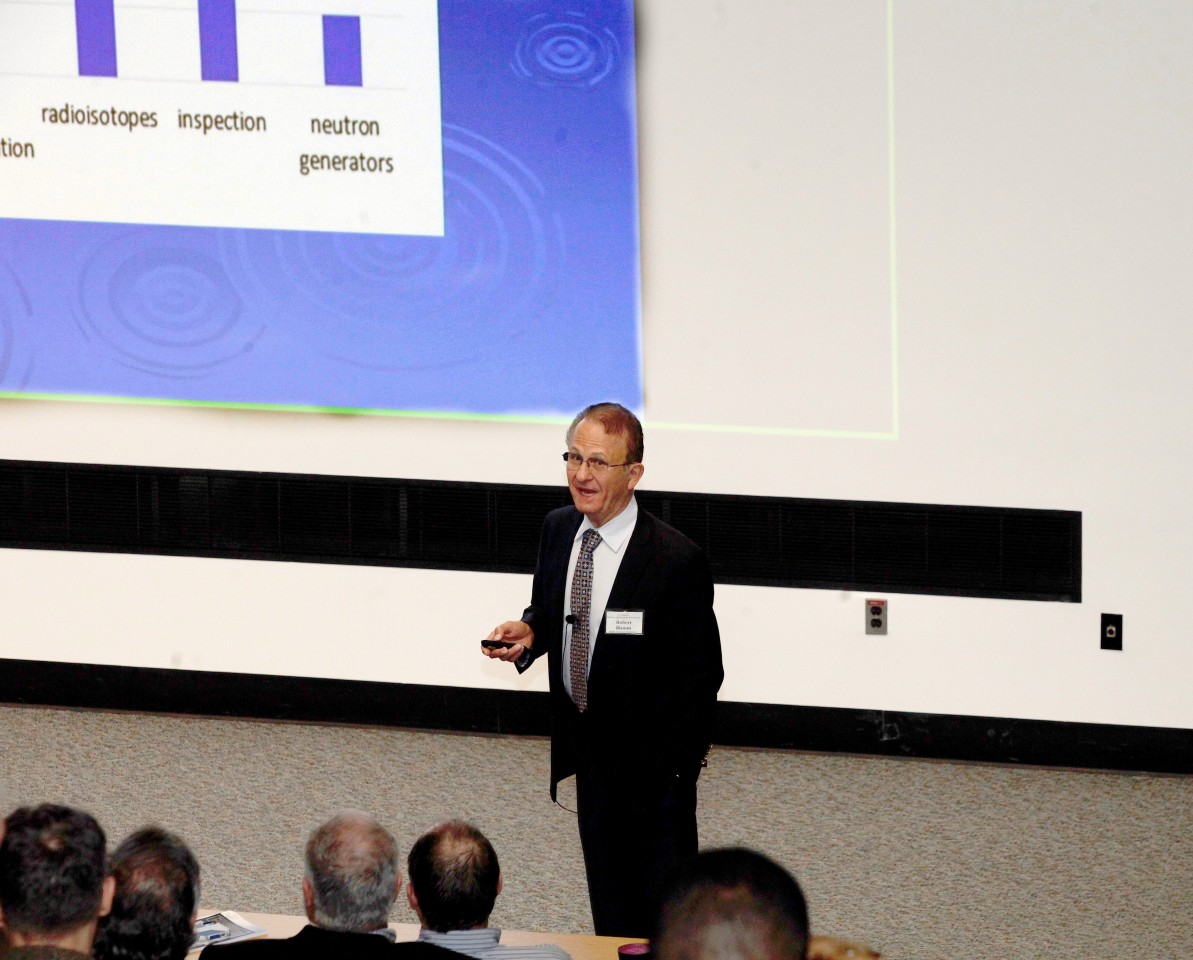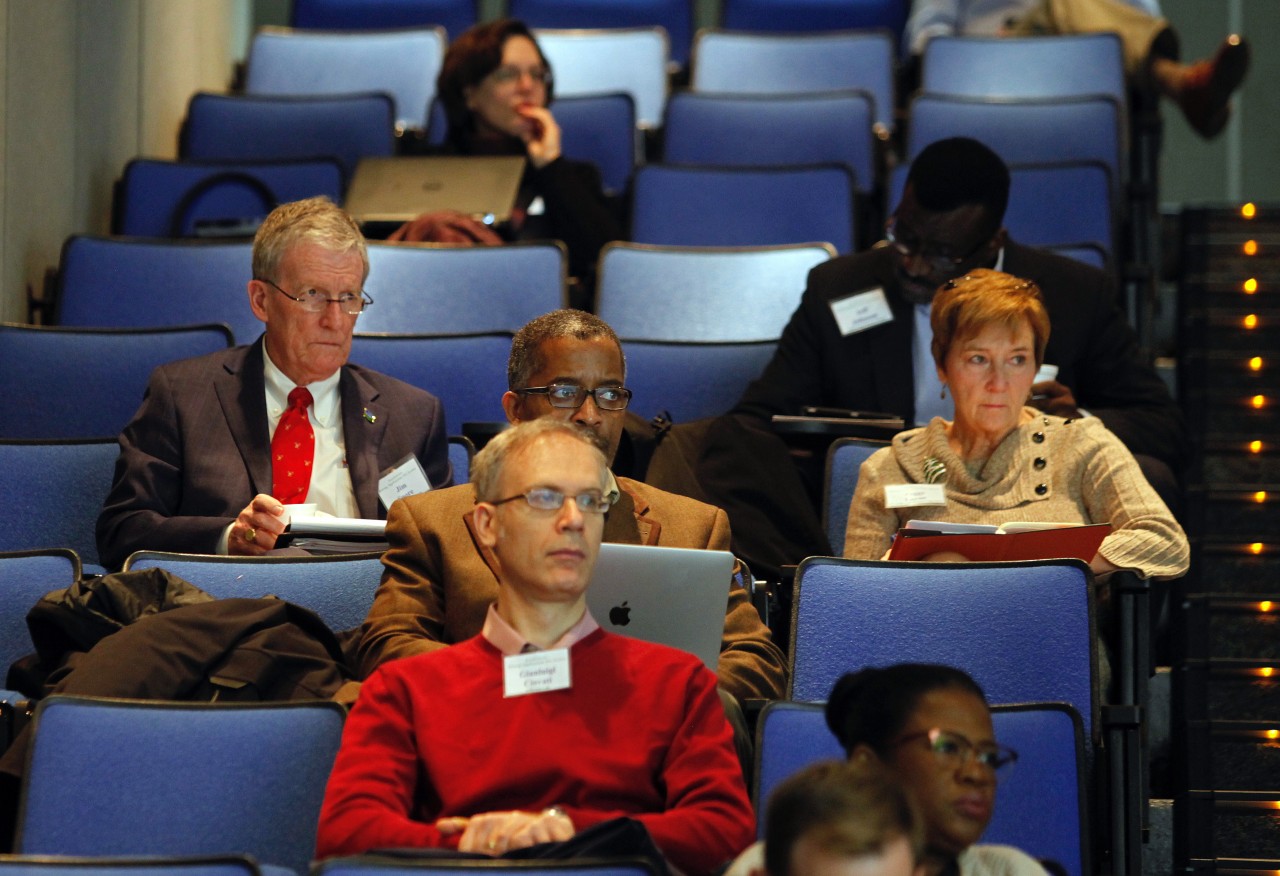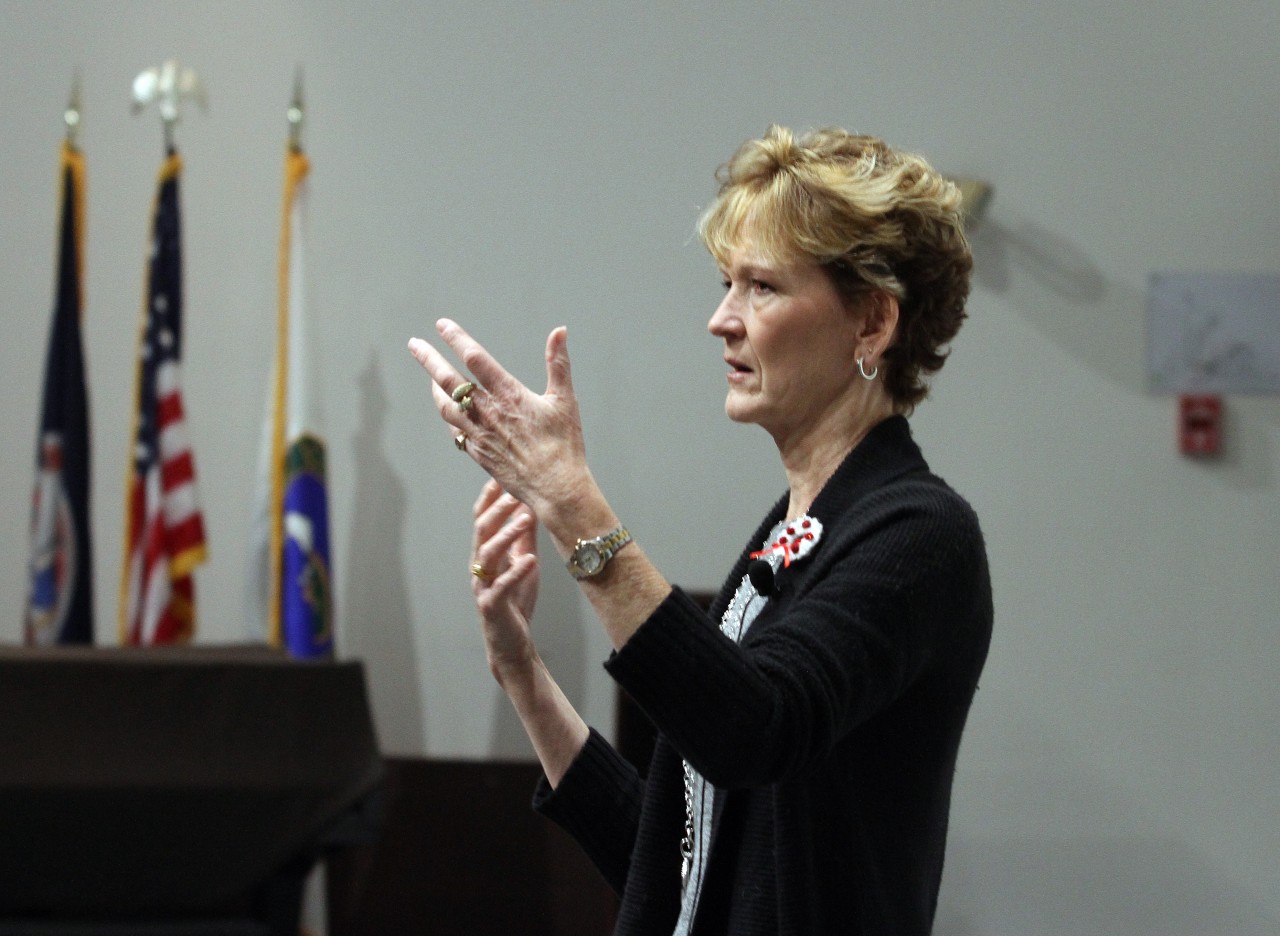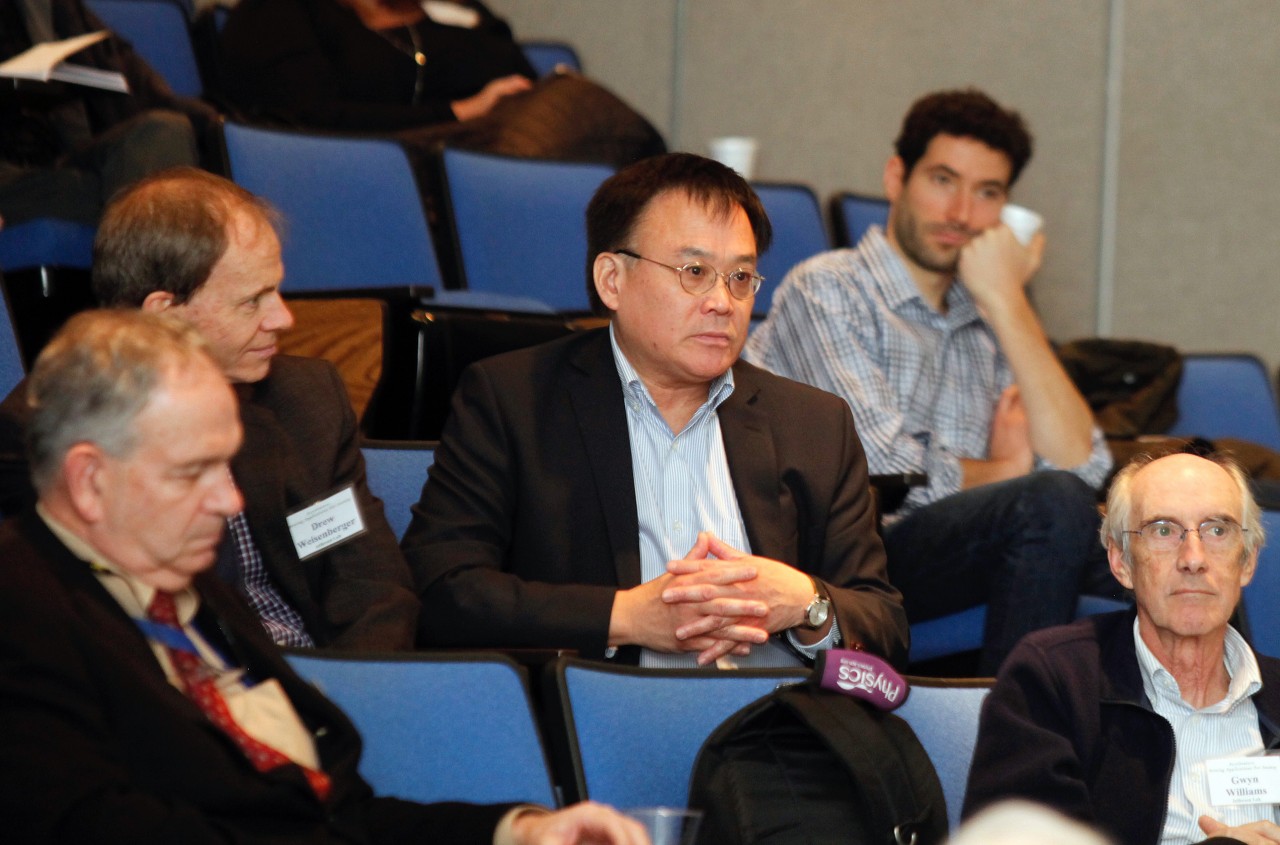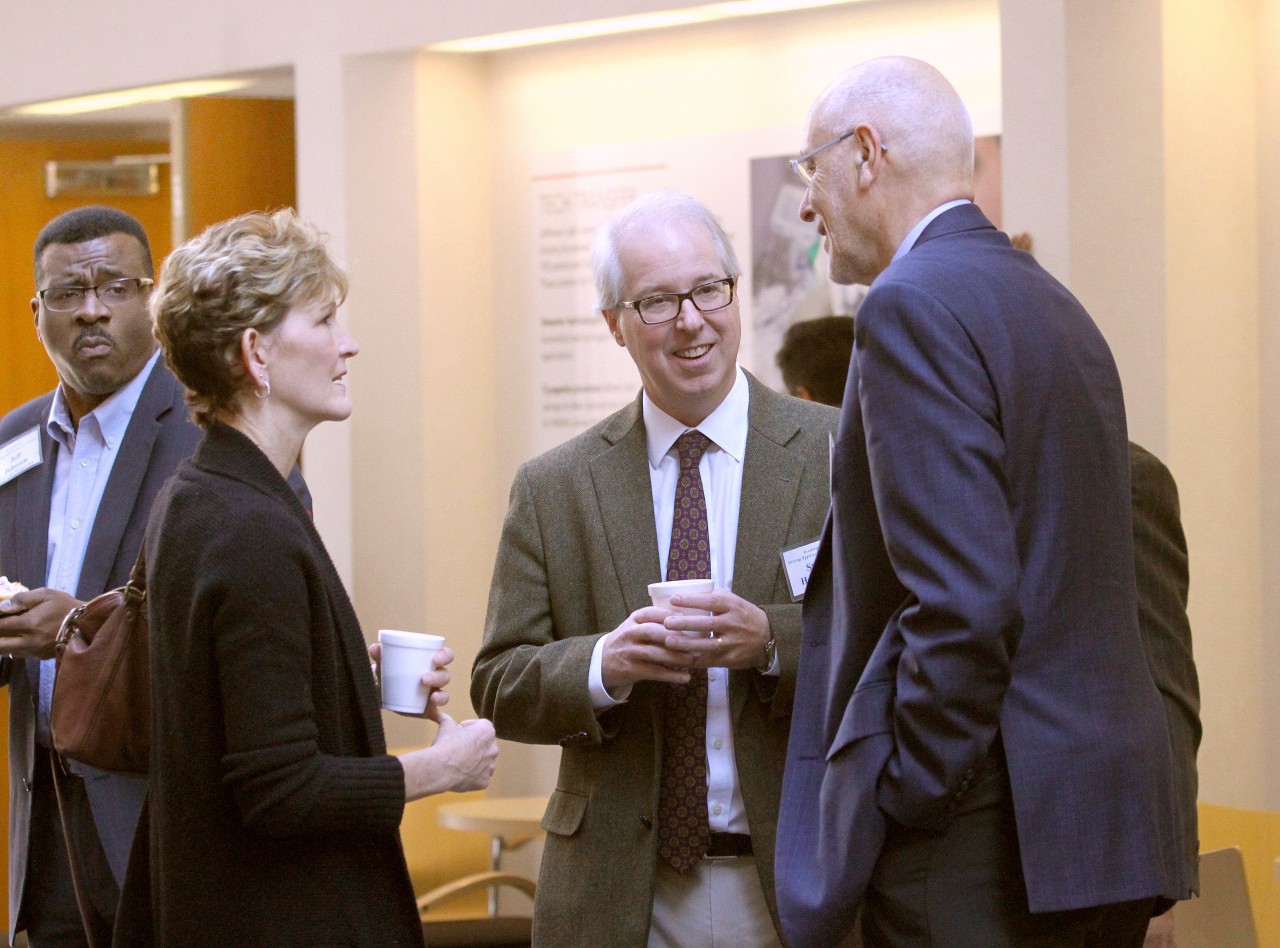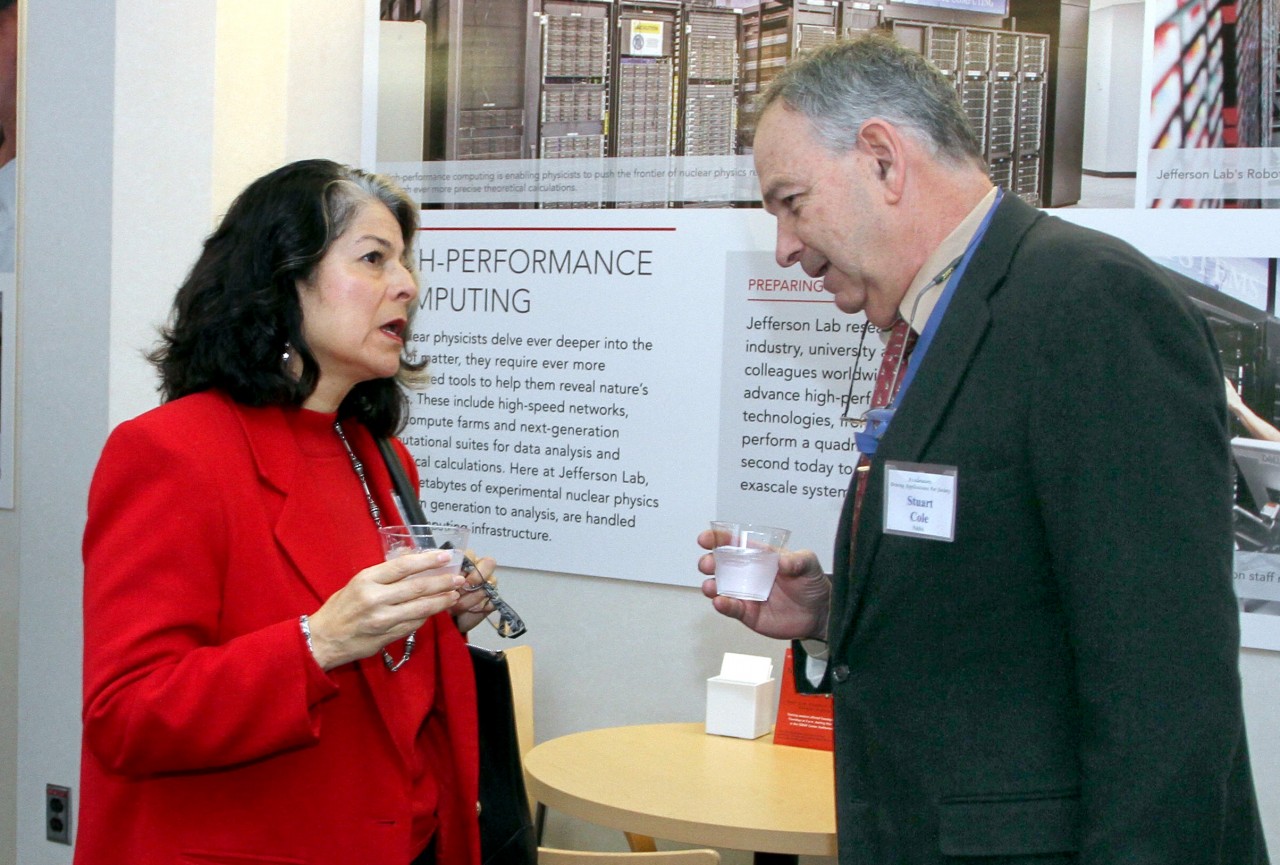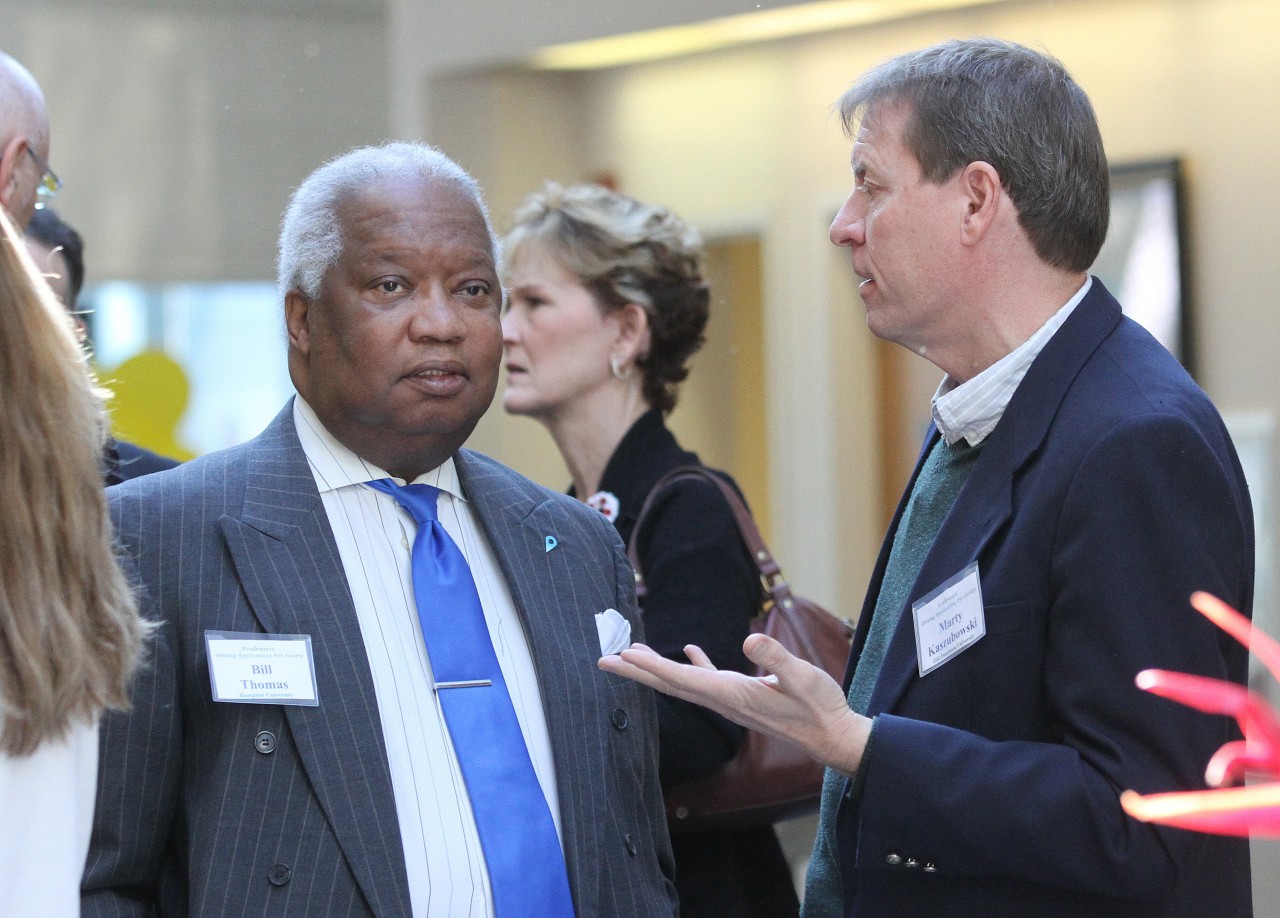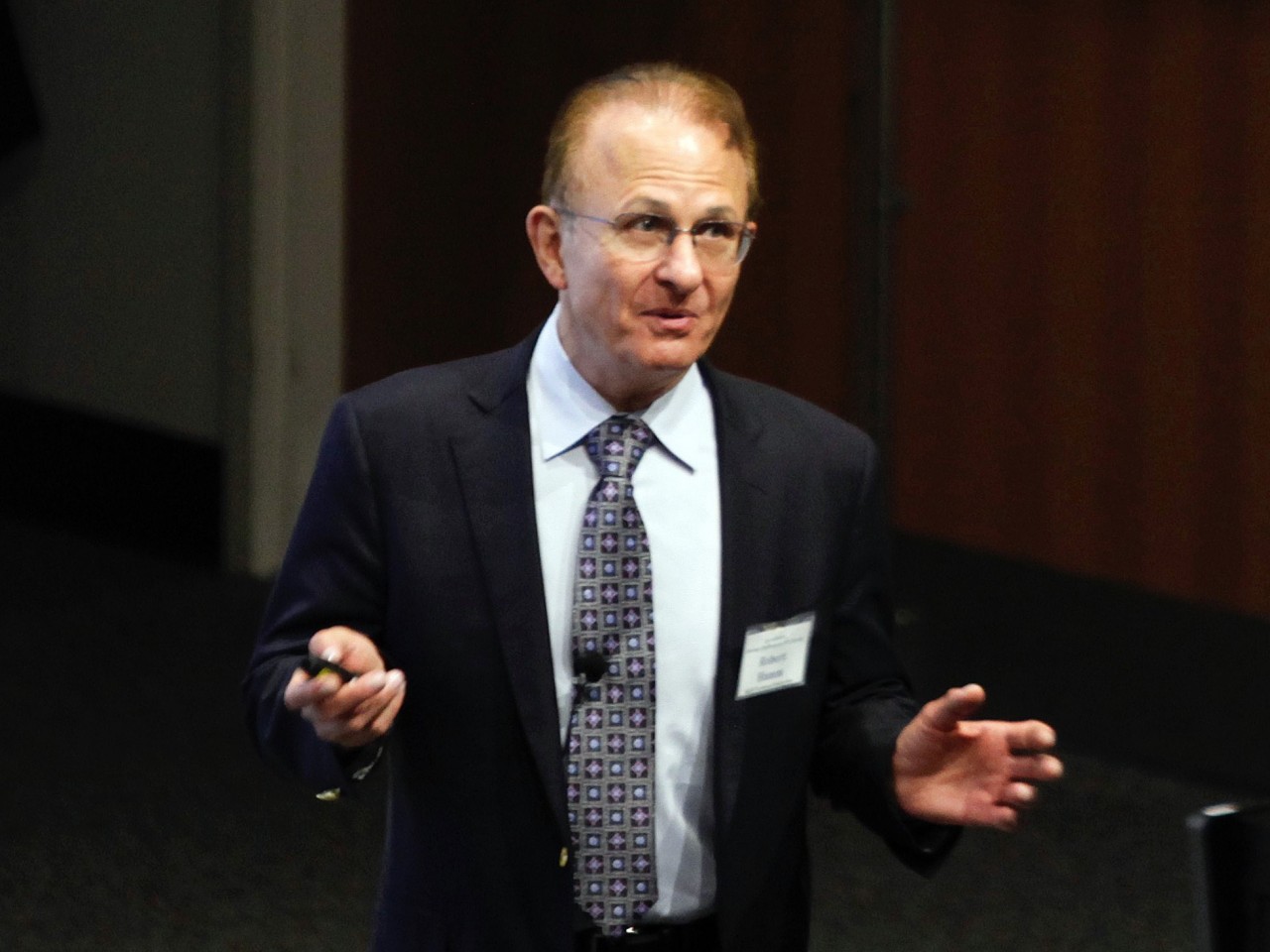Jefferson Lab's technology stewardship event: Accelerators: Driving Applications for Society offered a unique opportunity to hear the many ways that accelerators, originally developed for research, can now be used to address national and international priorities.
Jefferson Lab's technology stewardship event, Accelerators: Driving Applications for Society was held on December 17. It attracted a diverse audience from universities, companies, government and venture capital to hear the many ways that accelerators, originally developed for research, are now be used to address national and international priorities, including environmental cleanup, advanced materials for industrial applications, medicine and health, alternative energy, and national and homeland security.
Attendees heard from Dr. Robert Hamm, the keynote speaker, who provided a snapshot of how, and how much, industrial accelerators are used worldwide to address a number of problems in everyday life.
Presenters from industry, government and academia participated in interactive discussions highlighting the use of accelerators for medicine and health and environmental remediation. In addition, a panel on emerging applications of accelerators covered the development of new materials, surface treatments and alternative energy applications.
Interested participants toured Jefferson Lab's advanced accelerator research, testing and production facilities in the SRF Institute and had the chance to interact with each other, speakers and presenters at an informal reception.
Full event details can be found here.


